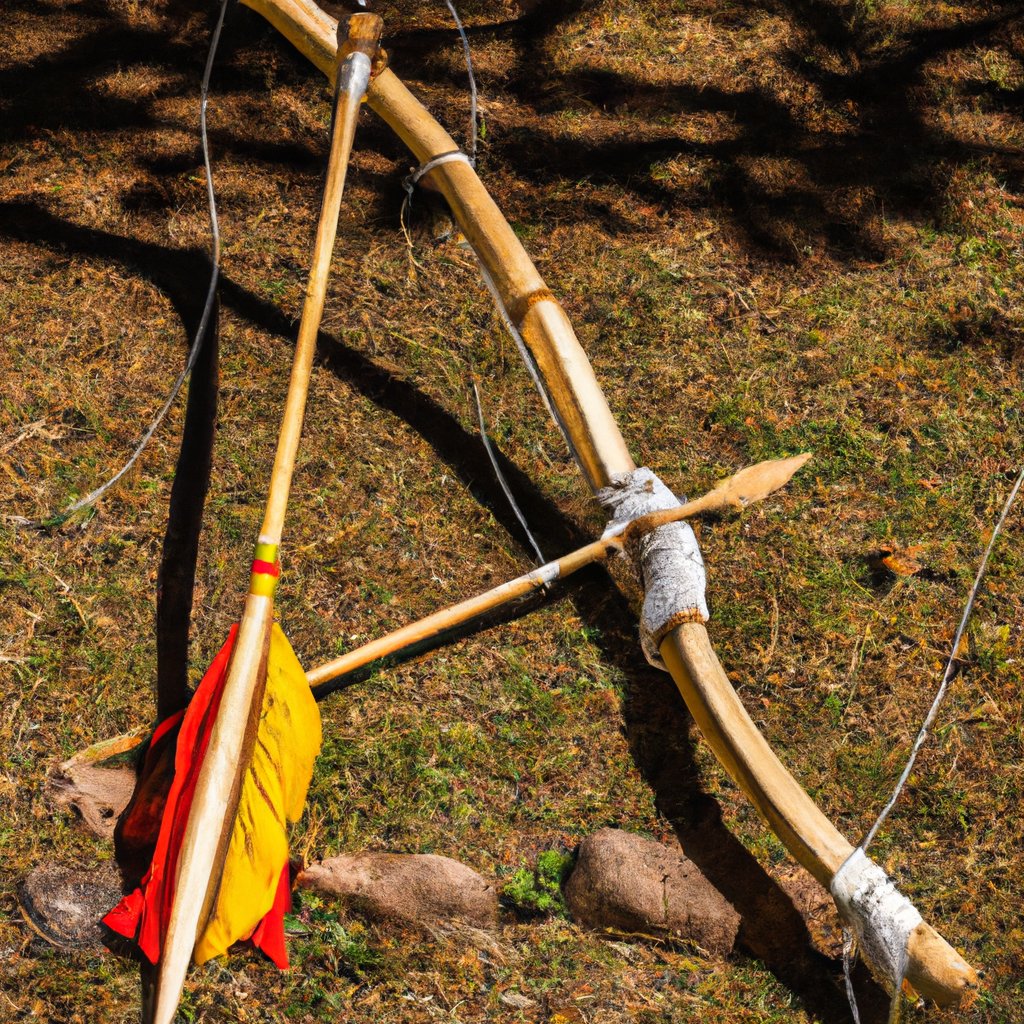Apache Perspectives on Survival and Sustainability
Introduction: Endurance
Under the vast Arizona sky, an Apache elder shares tales of land and life, woven with lessons learned over generations. With each story, listeners grasp the depth of survival rooted in Apache culture–a tapestry of wisdom guiding sustainable practices. This connection to the land fosters resilience, teaching us that survival is not merely about endurance; it’s about harmony. Apache Perspectives on Survival and Sustainability in Apache culture
Apache perspectives on survival and sustainability blend reverence for nature with a profound understanding of community. R traditional practices reveal a striking balance: respecting animal and plant life while meeting human needs. As they gather wild herbs and hunt game, they affirm a deep relationship with their environment, one that invites coexistence rather than exploitation. Apache Perspectives on Survival and Sustainability in Apache culture
In this exploration, we dive into the principles that shape Apache approaches to survival. Through oral traditions, rituals, and practical techniques, we discover how they sustain their culture while nurturing the land. Each lesson echoes the sentiment that our future hinges on the choices we make today–choices inspired by centuries of wisdom. Apache Perspectives on Survival and Sustainability in Apache culture
The teachings of the Apache remind us that survival extends beyond physical existence, encompassing spiritual and environmental well-being. In a world often dominated by quick fixes, their enduring perspectives call us to slow down and reflect. By honoring these insights, we not only safeguard our future but also enrich our connection to the world around us.
Historical Context: Endurance
The Apache people have a rich history that informs their perspectives on survival and sustainability. For centuries, they adapted to the diverse landscapes of the southwestern United States. These environments, ranging from deserts to mountains, shaped their resource management practices and cultural beliefs. Apache wisdom embodies a profound connection to the land, reflecting their ancestral knowledge.
Apache history is marked by resilience in the face of adversity. They faced numerous challenges, including European colonization, which disrupted their traditional ways of life. Yet, the Apaches adapted, showing remarkable ingenuity in their survival strategies. Each challenge reinforced their commitment to preserving their heritage and natural resources.
Embedded within Apache culture is a deep understanding of interdependence. Apache teachings emphasize harmony with nature and regard for all living things. This concept of balance underscores their sustainable practices, which prioritize the well-being of their communities and the environment. Through generations, the Apache have continually passed down these principles, shaping their identity and approach to survival.
What we seek is not only survival but a way to thrive in harmony with our surroundings. – Apache elder
This perspective fosters a profound respect for the Ãnt’i (Earth) and its resources. Apache narratives highlight the importance of stewardship, emphasizing that people must nurture the land rather than exploit it. Such teachings encourage current and future generations to consider the long-term impact of their actions on the environment.
In summary, the historical context of Apache survival and sustainability reveals a vibrant relationship with the land. R commitment to preserving traditional knowledge remains strong today. By embracing their heritage and adapting to modern challenges, the Apache continue to illustrate the power of wisdom in achieving harmony and balance with nature.
Cultural Significance: Cultural resilience
The Apache culture thrives on a profound connection to the land. Their survival strategies weave seamlessly into their spiritual practices, emphasizing respect for all living things. Each element of nature plays a critical role in Apache wisdom, guiding their approach to sustainability.
Apache teachings celebrate stewardship of the earth. Elders often share the belief that nature provides for those who care for it. This reciprocal relationship not only sustains their communities but also cultivates a deep sense of responsibility among the younger generations.
When we honor the earth, it honors us in return.
This principle manifests in various forms, from sustainable hunting practices to careful land management. The community gathers to discuss seasonal changes, ensuring everyone understands the rhythms of nature. Through these traditions, they reinforce the importance of living in harmony with the environment.
Also, Apache stories often revolve around survival themes. Tales of resilience and adaptability illustrate how generations responded to challenges. These narratives inspire current and future leaders to embrace innovation while holding onto their heritage.
- Apache wisdom teaches respect for natures cycles.
- Communal knowledge sharing fosters sustainable practices.
- Resilience tales inspire adaptability in the face of adversity.
Ultimately, Apache perspectives on survival and sustainability resonate far beyond their communities. Offer valuable lessons in environmental stewardship that everyone can learn from. As these teachings continue to thrive, they remind us all of our interconnectedness with the earth.
An Apache Story: Harmony with nature
Apache stories weave a rich tapestry of survival and sustainability. Elders pass down wisdom through generations, teaching the young how to live in harmony with the land. One compelling tale speaks of a severe drought that threatened the tribes’ existence.
During these hard times, the community gathered. Shared their fears and hopes, but also their knowledge. An elder stood and recounted how the ancestors thrived during struggles. He reminded them that the earth sustains us if we respect and nurture it.
In every drop of rain lies the promise of life. We must listen, adapt, and honor this gift.
Inspired, the tribe implemented water-saving techniques and cultivated drought-resistant crops. They dug deeper wells and collected rainwater with care. Each family transformed their approach, fostering resilience amid adversity.
Through cooperation, the Apache people thrived. Understood that survival mirrored the cycles of nature. As they changed their practices, they also renewed their connection to the earth.
This story reinforces a vital lesson: adaptability fuels survival. It illustrates how wisdom, grounded in history, guides actions today. Each challenge becomes an opportunity to learn, grow, and sustain.
Under the vast expanse of a star-speckled sky, the winds whispered secrets of old. In the heart of the desert, Voyage prepared for a sacred ritual, his fire flickering like a heartbeat against the cool night air. This night promised healing, not just for the body, but for the spirit of the land itself. Duos and China stood nearby, anticipation shimmering in their eyes.
Tonight, we honor the Ãnt’i (Earth) and all her gifts, Voyage spoke, his voice deep and resonant. He spread the soft, woven blanket beneath them, its fibers a tapestry of colors, mirroring the lands’ beauty. The aroma of sage filled the air as he lit it, the smoke curling upward like prayers offered to the cosmos. China, inspired by Voyages calm, asked What can we do to help her, Voyage?
With a knowing smile, Voyage replied, We must listen to her stories. She speaks through the rustling leaves and the gentle ripples of the river. As he began to chant, his voice melded with the deserts’ symphony. The ground beneath them vibrated softly, as if responding to his words. Duos knelt down, feeling the pulse of the earth beneath his hands, realizing they were all a part of this sacred circle.
As the ritual deepened, a vision unfolded in Voyages mind. He saw the land, thriving with life–vibrant plant life stretching skyward, animals roaming free, and rivers flowing abundantly. We protect this by nurturing it, he urged, his eyes shining with passion. Every action creates an echo, threading us into the fabric of Creation. China and Duos nodded, committed to this vision beyond mere words.
The night wore on, and as the first light of dawn crept over the horizon, the fire crackled eagerly, as if it, too, celebrated the new day. Voyage concluded the ritual, Remember, balance comes from respect. Take only what you need and give back to the land. Duos and China felt the weight of this wisdom settle inside them like an unyielding promise.
In the days that followed, Voyages teachings flourished. Duos tended to the garden, planting with intention, while China gathered herbs, spreading knowledge and rituals among their people. Together, they worked to heal not just themselves, but their community. They felt the bond grow with every seed sown and every prayer uttered.
Ultimately, their journey revealed a vital lesson: survival spirals from harmony with nature. Tségháhoodzánà (Healing) extends beyond the individual; it resonates through generations. Are we not all keepers of the Ãnt’i (Earth), tasked with ensuring her stories continue? Let this question guide you, for true sustainability thrives when we live in balance with the world around us.
Examples and Expert Insights: Land-based teachings
Examples:: Harmony with nature
- The Apache practice of wild crafting, which involves gathering native plants and herbs for food and medicine, emphasizes the sustainable use of natural resources while maintaining respect for the land.
- Traditional Apache fishing techniques, such as using weirs and traps, showcase their ability to harvest aquatic resources sustainably, ensuring fish populations remain healthy and ecosystems are balanced.
- The Apaches practice of controlled burns reflects their knowledge of fire as a tool for land management, reducing underbrush while promoting new growth and supporting biodiversity within their territories.
- Community-focused hunting strategies demonstrate the Apache commitment to sustainability; hunters follow protocols that ensure the populations health and minimize environmental impact.
Expert Insights:: Harmony with nature
Indigenous peoples understandings of environmental sustainability are derived from centuries of observation and interaction with their lands.
The Apache approach to wildlife management highlights the importance of cultural practices in achieving ecological balance.
Practical Applications: Traditional knowledge
Apache wisdom teaches practical survival skills that extend well beyond mere existence. Drawing from their deep connection to nature, they embrace sustainable practices that foster ecological harmony. By employing traditional methods, they demonstrate resilience and resourcefulness in various environments.
First, the Apache emphasize the importance of biodiversity. Understand that diverse ecosystems thrive best. So, they practice crop rotation, planting a variety of species to maintain soil health and yield robust harvests.
Sustainability is not a choice; it is a necessity.
Secondly, water conservation plays a crucial role in their survival strategies. Apaches build structures that efficiently capture rainwater, using every drop wisely. This practice resonates with contemporary approaches to resource management in water-scarce regions.
Thirdly, the Apache utilize natural materials for shelter and tools. They craft items from clay, wood, and stone, minimizing dependence on synthetic materials. This creativity not only upholds traditions but also reduces environmental impact.
Plus, they practice fire management through controlled burns. E intentional fires clear away underbrush, promoting healthier ecosystems and reducing wildfire risks. Such proactive measures illustrate a deep understanding of ecological balance.
- Engage in community hunting and gathering to promote shared resources.
- Utilize traditional ecological knowledge to inform modern practices.
- Incorporate storytelling as a means of passing down survival techniques.
Lastly, Apache cultural practices inspire mindfulness toward nature. By nurturing a spiritual connection to the land, they remind us the earth is alive and deserving of respect. This outlook encourages sustainable living and fosters a greater sense of community.
Modern Relevance: Sustainability
Apache wisdom offers profound insights into survival and sustainability, relevant now more than ever. Each lesson emphasizes interconnectedness–between people, nature, and the spirit world. In today’s climate crisis, these teachings remind us of our responsibility to nurture the Ãnt’i (Earth).
Modern society often forgets this balance, leading to environmental degradation. Apache concept of walking in beauty demands a harmonious relationship with nature. This notion encourages everyone to consider the impact of their actions, fostering a sense of stewardship.
Indigenous practices, such as controlled burns and rotational farming, demonstrate practical methods of resource management. Communities can learn from these age-old techniques, applying them to contemporary challenges. Embracing Apache perspectives on biodiversity can enhance our understanding of sustainable solutions.
We grow in beauty as we walk through life.
This simple yet powerful assertion embodies the essence of sustainability. Every step forward in conservation springs from respect and gratitude for the land. When we adopt this mindset, our survival becomes intertwined with the health of our environment.
Plus, unity plays a crucial role in Apache culture. Collaborative efforts to protect natural resources can amplify our impact. By working together, we confront the pressing issues of our time, from climate change to habitat loss.
Ultimately, the Apache way teaches us resilience. Each challenge we face becomes an opportunity for growth and learning. As we navigate the complexities of modern life, these timeless lessons guide us toward a sustainable future.
Conclusion: Cultural resilience
Apache wisdom offers profound insights into survival and sustainability. By embracing natures cycles, the Apache people teach us the importance of living harmoniously with the environment. They focus on resilience, adaptability, and respect–qualities essential for enduring challenges.
Through practices like controlled burns and seasonal hunting, they illustrate the value of stewardship. This commitment to balance ensures that both the land and its creatures thrive. Each lesson emphasizes a key truth: our survival hinges on respecting and nurturing the earth.
As we face global challenges, we must draw inspiration from Indigenous perspectives. Apache teachings urge us to rethink our relationship with nature and adopt sustainable practices. By implementing these insights, we can forge a path towards a more sustainable future.
Let us not overlook the wisdom that surrounds us. Pay attention to the rhythms of nature and adopt practices that honor the earth. Together, we can create a legacy of sustainability that echoes through generations.
Apache Terminology Glossary: Endurance
- TségháhoodzánÃ
(Healing)
-
Traditional healing practices
- Tséłkáádéé
(River)
-
Source of life and spiritual cleansing
- ÃÃsh
(Corn)
-
Staple food and sacred plant
- Ãnt’i
(Earth)
-
Source of life and sustenance
- Shash
(Bear)
-
Symbol of strength and healing
- ChÃÃl
(Arrow)
-
Symbolizes hunting and warrior skills
- ÃÃsbáÃ
(Warrior)
-
Defender of the tribe
- Ndé
(The People)
-
Term for Apache people
More Resources
Dive deeper into the fascinating world of Apache wisdom and its modern applications. Explore these thought-provoking questions to expand your understanding of the concepts discussed in this article.
Explore Further with Google
- How can we teach sustainable living in our education systems?
- How can we share spiritual teachings in our education systems?
- How can we practice indigenous wisdom in our societal issues?
Discover Insights with Perplexity
- How can we revitalize ethnobotany in our climate change?
- What ancient wisdom can we apply to modern life?
- How can we celebrate community resilience in our modern life?
By exploring these questions, you’ll gain a richer appreciation for indigenous cultures, environmental stewardship, and mindfulness practices. Each link opens a gateway to deeper knowledge, helping you connect ancient wisdom with contemporary life.
Thank you for reading!






